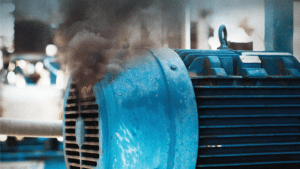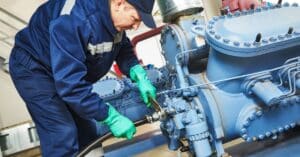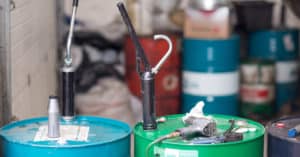Redlist Newsletter
Thank you for subscribing
While you wait for our next newsletter to hit your inbox take some time to browse our recent posts.

A Comprehensive Guide to Failure Mode and Effects Analysis (FMEA) to Maximize Equipment Reliability
Whether you’re a seasoned reliability engineer or new to the concept, this guide will equip you with the knowledge and insights needed to implement Failure Mode and Effects Analysis successfully in your organization.

How Reliability Reports Enhance Machinery Performance and Longevity
This post explores the critical role of reliability reports in enhancing machinery performance, longevity, and overall machine reliability.

4 Maintenance Manager Tips to Boost Efficiency and Performance
Maintenance management is a demanding job. A maintenance manager constantly deals with stress resulting from complex maintenance processes, team dynamics, and management pressure. Thus, maintenance managers must have the technical, managerial, and leadership skills to cope with the job’s demands.

The Role of Reliability Engineers in Managing and Preventing Equipment Failure
In any industry, equipment reliability determines a company’s success. Reliability engineers are critical to this success because they are at the forefront of the efforts to achieve reliability and minimize equipment failure. This post provides a detailed look into a reliability engineer’s responsibilities, tools, and skills needed to accomplish reliability goals.

Protecting Your Machinery from Equipment Failure: Best Practices for Reliability Engineers
Equipment reliability is the bottom line of any organization aiming to thrive in today’s highly competitive industrial landscape. Equipment reliability means protecting your machinery from equipment failure, thus maintaining productivity, ensuring safety, and minimizing operational costs.

5 Common Maintenance Mistakes Leading to Unnecessary Machine Downtime and How to Avoid Them
Maintaining maximum productivity in the fast-paced industrial world of today depends on effective maintenance management. Nonetheless, there are a few typical errors that can cause needless machine downtime, which would reduce profitability and production. We examine these common maintenance mistakes in this post and offer helpful advice on how to prevent them.

The 5s Principles Of Reducing Unplanned Machine Downtime
Machine downtime must be minimized in today’s fast-paced industrial environment in order to sustain profitability and efficiency. A very successful approach of reducing downtime is to apply the 5S concept, which is a lean manufacturing tool that emphasizes workplace organization.

Equipment Failure 101: Mastering Equipment Reliability as a Reliability Engineer
Equipment failure is one of, if not the most, critical challenges that reliability engineers face. If unmanaged, equipment failure can lead to reduced productivity, high operational costs, increased downtime, and poor safety. By understanding the top causes of equipment failure, reliability engineers can develop strategies to prevent them. Ultimately, this will reduce the occurrence of equipment failure and its negative impacts on the business.

Top Causes of Equipment Failure and How to Prevent Them: A Guide for Reliability Engineers
Equipment failure can lead to unplanned downtime, costly repair bills, and compromised safety. Understanding the common causes of equipment failure and implementing strategic preventative measures is essential to maintaining high equipment reliability.

How to Establish a World-class Lubrication Program as a Reliability Manager
Lubrication is no longer just another low-priority side task. Any modern and competitive industrial organization recognizes that lubrication is critical to achieving its bottom line: asset reliability. A world-class lubrication program helps achieve and maintain optimal lubrication levels necessary for maximum asset health and lifespan.

Particle Contamination 101 for Effective Lubrication Management
Particle contamination is a major issue in lubrication management. If unmanaged, particle contamination can be detrimental to machinery performance and longevity. This post provides all the necessary information on particle contamination, helping you achieve effective and successful lubrication management.

CMMS vs. EAM vs. LMS: Which is the Best for You?
CMMS, EAM, and Lubrication Management Software are three of the most valuable maintenance and asset management systems today. These software applications have similarities and differences, but they all aim to optimize maintenance processes and provide management solutions to organizations.